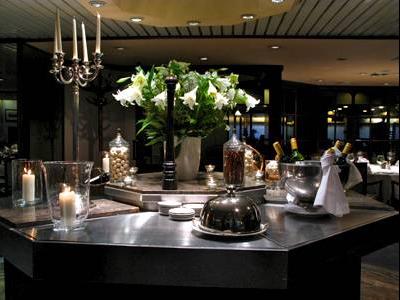Hotel Bedford's tips for your getaway in Brussels
Brussels is the capital of Belgium and, as the center of the European Union, a place internationally known for it's rich culture. We want to share our personal tips for your stay in Brussels!
The Atomium
The Atomium is a gigantic (102 meters high) replica of an iron crystal, enlarged on 165 bilion times. Surrounded by The Atomium you find various art- and science exhibitions and the Parc d'Osseghem (Ossegempark). Just take line 3 and stop at Esplanade.
Grand Place
Along with the Atomium, the Grand Place is a major representation of Brussels’ history. This 15th century square is full of buildings with historic significance and is a must visit when you are in Brussels.
Since 1998 the Grand-Place has been listed as a UNESCO World Heritage site and over the years, different guilds and institutions began to build their edifices around the Place including the Bread market, the Fabric market, and the Meat market.
The Bedford is just a five minute walk from the Grand Place.
Sablon
The Sablon (French) or Zavel (Dutch) is a neighbourhood and hill in the historic upper town of Brussels. At its heart are the twin squares of the larger Grand Sablon (French for Large Sablon) or Grote Zavel square in the northwest and the smaller Petit Sablon (French for Small Sablon) or Kleine Zavel square and garden in the southeast, divided by the Church of Our Blessed Lady of the Sablon.
Manneke Pis
Manneken Pis (About this sound is a landmark small bronze sculpture (61 cm) in Brussels, depicting a naked little boy urinating into a fountain's basin. It was designed by Hiëronymus Duquesnoy the Elder and put in place in 1618 or 1619.
The famous statue is located at the junction of Rue de l'Étuve/Stoofstraat and Rue du Chêne/Eikstraat. To find it, one takes the left lane next to the Brussels Town Hall from the famous Grand Place and walks a few hundred metres southwest via Rue Charles Buls/Karel Bulsstraa
Les Halles Saint-Gery
In 1881 this superb neo-Renaissance brick-and-wrought-iron meat market was built around a curious pyramidal monument-fountain (itself built to replace a medieval Gothic church demolished in 1799 by the anti-religious French regime). The monument marks ‘kilometre zero’ – the point from which all distances in Belgium are measured. The market lay derelict for much of the 1980s but has since been beautifully renovated and is now a combined bar-café, club and exhibition space.






